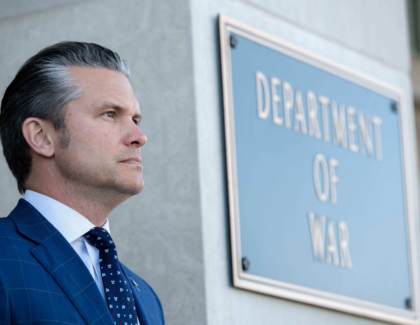Sign up for the daily CJR newsletter.
Bloomberg has an excellent investigation into Louisiana’s oil regulators, finding that the state fines oil companies for oil spill less than 1 percent of the time over the last five years.
Unfortunately, I can’t find the story on the Web. It appears to be terminal-only, at least for now. So no link for you! Hope you can afford that $20,000 a year subscription.
Most of those spills, unlike the BP/Transocean/Halliburton spill, are small. But there are a lot of them—4,000 a year, which is more than any other state. And even when they are relatively large, they’re as likely as not to go unpenalized. The state’s average fine is 93 percent less than the federal government’s average fine for spills in Louisiana.
Bloomberg’s Ken Wells, Aaron Kuriloff and Charles R. Babcock paint a grim picture of the state’s regulators—if you can even call them that—giving the soft touch to companies that repeatedly pollute the state.
In 2009, Louisiana punished oil companies for fewer than one in 100 spills, the data show. Fines are measured in thousands of dollars, not millions. They take years to collect and are seldom levied against even repeat spillers. A small gas station operator was penalized for faulty paperwork while the state’s biggest oil producer paid no fines in more than a dozen spills since 2002, according to state records.
Louisiana hasn’t pressed criminal charges against anyone. And check out why the state says that is:
Louisiana says one reason for its lack of prosecutions is that few companies willfully spill crude oil. “Oil is a valuable product,” said Rodney Mallett, DEQ press secretary. “Rarely will someone knowingly or deliberately discharge oil.”
Well, no kidding. Do you doubt that they recklessly discharge it sometimes, though?
Here’s how the state treats its largest oil producer, Hilcorp Energy Co., which has had thirteen (documented) spills since 2002:
The largest incident, in December 2002, totaled 1,000 barrels. It created what state enforcement documents called a “dead zone” in 7 acres of cypress forest in the Atchafalaya Basin about 130 miles west of New Orleans.
Bloomberg reports that Hilcorp faced a tiny fine of about $32,000—but Louisiana let it off the hook with no penalty. Bloomberg is good to juxtapose those numbers with how much the company makes in Louisiana: It produced half a billion dollars worth of oil in the state last year alone.
Bloomberg also gets some very good on-the-record quotes, including this one from a former state oil inspector:
From 1982 to 1997, Kerry St. Pe recommended fines in “hundreds and hundreds of cases” as a DEQ inspector in southeastern Louisiana, he says.
“But in terms of actual penalties that were levied based on my investigations, I can count them on one hand,” said St. Pe, 60, a marine biologist who now heads the Barataria-
Terrebonne National Estuary Program in southeastern Louisiana. He said the main reason was “political pressure to the contrary,” which he described as a sense that vigorous enforcement in the field was being discouraged in Baton Rouge, the state capital.“When oil companies see it’s cheaper to pollute than to prevent spills, it creates a culture of noncompliance,” St. Pe said.
And it gets an excellent kicker from St. Pe:
“Corporations are like children,” he says. “If you allow your kids to have all the candy they want, you’ll get them fat and all keyed up on sugar. And when you then try to discipline them, you wonder why they won’t listen. It’s the same with these corporations. In Louisiana, they virtually get everything they ask for, so why should they behave?”
It’s a great piece of work. Let’s hope Bloomberg releases it into the wild soon so everyone can read it.
Has America ever needed a media defender more than now? Help us by joining CJR today.






